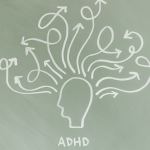New Alzheimer’s Genes Discovered
NODE SMITH, ND
A research team led by Chunshui Yu and Mulin Jun Li of Tianjin Medical University has discovered two new genes potentially involved in Alzheimer’s disease. They identified them by exploring which genes were turned on and off in the hippocampus of people who suffered from the disease. The team’s new findings are published in PLOS Genetics.
Alzheimer’s disease is a neurodegenerative disorder that involves worsening dementia and the formation of protein plaques and tangles in the brain. The hippocampus, part of the brain involved in memory, is one of the first regions to sustain damage. To better understand which genes contribute to the progression of this heritable disease, the researchers identified genes expressed at higher or lower levels in the hippocampus of people with Alzheimer’s disease compared to healthy brains. They identified 24 Alzheimer’s-related genes that appear to have an effect through the hippocampus, using previous genomic and hippocampus gene expression data. Many genes were already known to contribute to the disease, such as APOE, but two were unknown, PTPN9 and PCDHA4. Additionally, several are involved in biological process related to Alzheimer’s disease, such as plaque formation and cell death.
The research team further validated their findings by comparing gene expression for the two dozen genes to images of the individuals’ brains. In Alzheimer’s disease, damage and loss of neurons causes the hippocampus to shrink, which can be measured through medical imaging. The researchers established that expression of two of the genes is related to the size of the hippocampus and a diagnosis of Alzheimer’s disease.
Overall, the new findings improve our understanding of the genetic and cellular mechanisms that cause Alzheimer’s disease. The next step will be to investigate the roles of the two novel genes and how they contribute to this devastating disease.
The authors add, “The study identifies two novel genes associated with Alzheimer’s disease in the context of hippocampal tissue and reveals candidate hippocampus-mediated neurobiological pathways from gene expression to Alzheimer’s disease.”
1. Nana Liu, Jiayuan Xu, Huaigui Liu, Shijie Zhang, Miaoxin Li, Yao Zhou, Wen Qin, Mulin Jun Li, Chunshui Yu. Hippocampal transcriptome-wide association study and neurobiological pathway analysis for Alzheimer’s disease. PLOS Genetics, 2021; 17 (2): e1009363 DOI: 10.1371/journal.pgen.1009363

Node Smith, ND, is a naturopathic physician in Humboldt, Saskatchewan and associate editor and continuing education director for NDNR. His mission is serving relationships that support the process of transformation, and that ultimately lead to healthier people, businesses and communities. His primary therapeutic tools include counselling, homeopathy, diet and the use of cold water combined with exercise. Node considers health to be a reflection of the relationships a person or a business has with themselves, with God and with those around them. In order to cure disease and to heal, these relationships must be specifically considered. Node has worked intimately with many groups and organizations within the naturopathic profession, and helped found the non-profit, Association for Naturopathic Revitalization (ANR), which works to promote and facilitate experiential education in vitalism.










